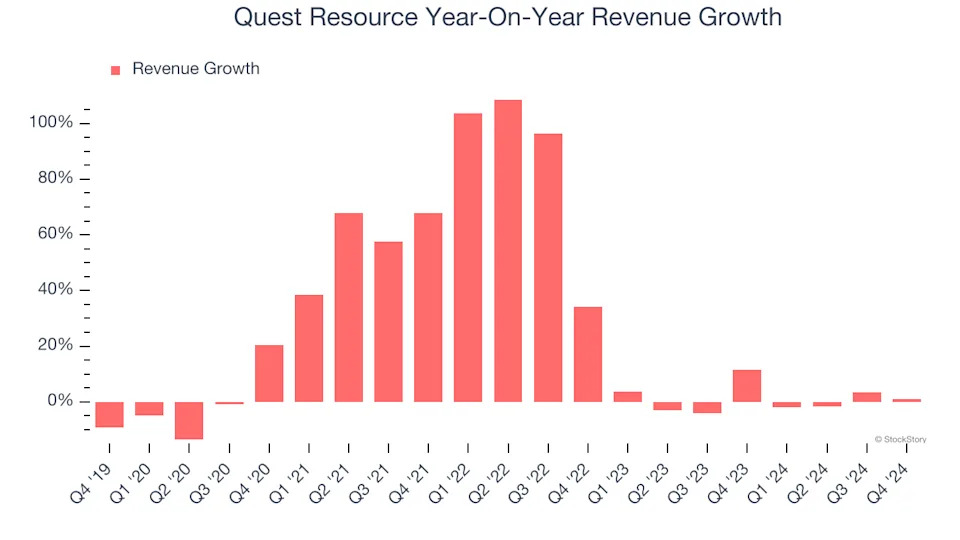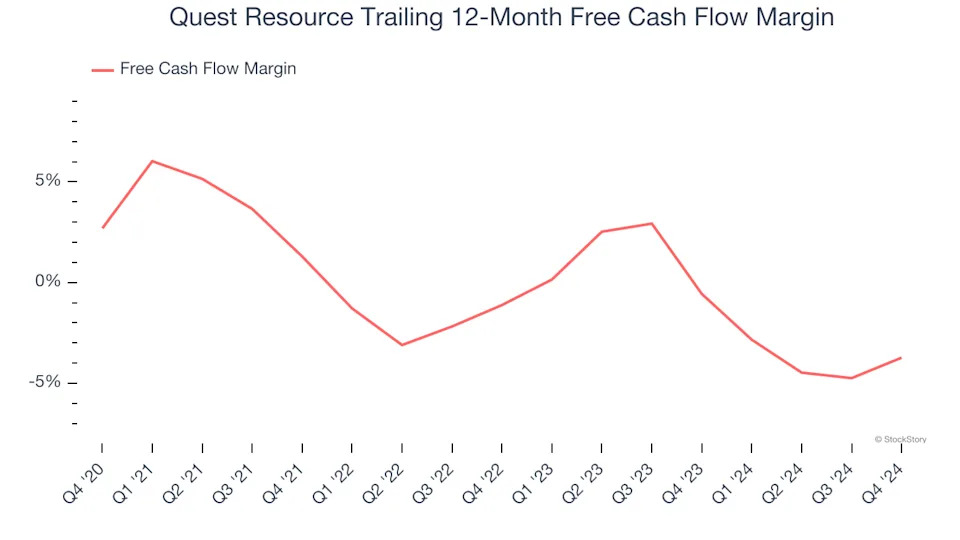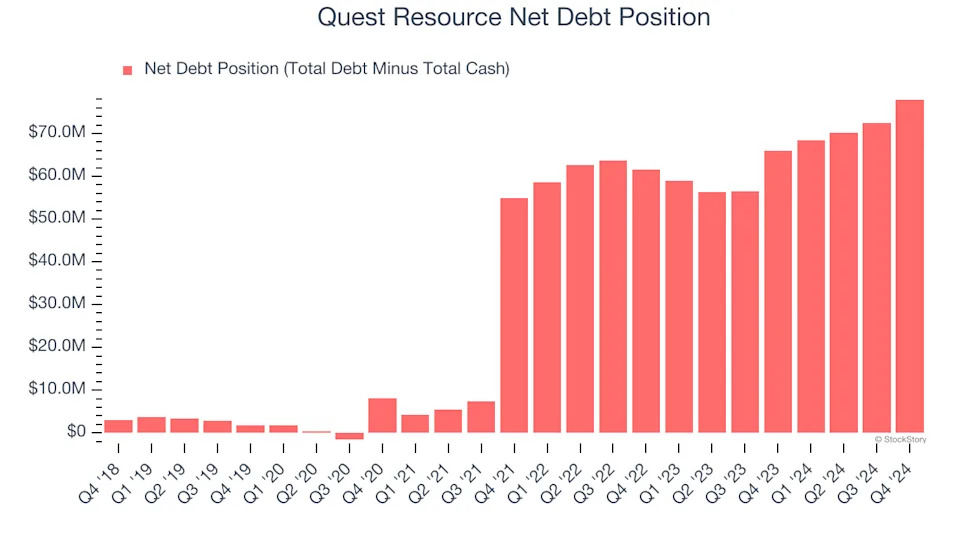
3 Reasons QRHC is Risky and 1 Stock to Buy Instead

Quest Resource’s stock price has taken a beating over the past six months, shedding 69.2% of its value and falling to $2.48 per share. This was partly driven by its softer quarterly results and might have investors contemplating their next move.
Is now the time to buy Quest Resource, or should you be careful about including it in your portfolio? Check out our in-depth research report to see what our analysts have to say, it’s free .
Even though the stock has become cheaper, we're sitting this one out for now. Here are three reasons why QRHC doesn't excite us and a stock we'd rather own.
Why Do We Think Quest Resource Will Underperform?
Recycling corporate waste to help companies be more sustainable, Quest Resource (NASDAQ:QRHC) is a provider of waste and recycling services.
1. Revenue Growth Flatlining
We at StockStory place the most emphasis on long-term growth, but within industrials, a stretched historical view may miss cycles, industry trends, or a company capitalizing on catalysts such as a new contract win or a successful product line. Quest Resource’s recent performance shows its demand has slowed significantly as its revenue was flat over the last two years.

2. Free Cash Flow Margin Dropping
If you’ve followed StockStory for a while, you know we emphasize free cash flow. Why, you ask? We believe that in the end, cash is king, and you can’t use accounting profits to pay the bills.
As you can see below, Quest Resource’s margin dropped by 6.4 percentage points over the last five years. Almost any movement in the wrong direction is undesirable because of its already low cash conversion. If the trend continues, it could signal it’s becoming a more capital-intensive business. Quest Resource’s free cash flow margin for the trailing 12 months was negative 3.7%.

3. Short Cash Runway Exposes Shareholders to Potential Dilution
As long-term investors, the risk we care about most is the permanent loss of capital, which can happen when a company goes bankrupt or raises money from a disadvantaged position. This is separate from short-term stock price volatility, something we are much less bothered by.
Quest Resource burned through $10.77 million of cash over the last year, and its $78.35 million of debt exceeds the $396,000 of cash on its balance sheet. This is a deal breaker for us because indebted loss-making companies spell trouble.

Unless the Quest Resource’s fundamentals change quickly, it might find itself in a position where it must raise capital from investors to continue operating. Whether that would be favorable is unclear because dilution is a headwind for shareholder returns.